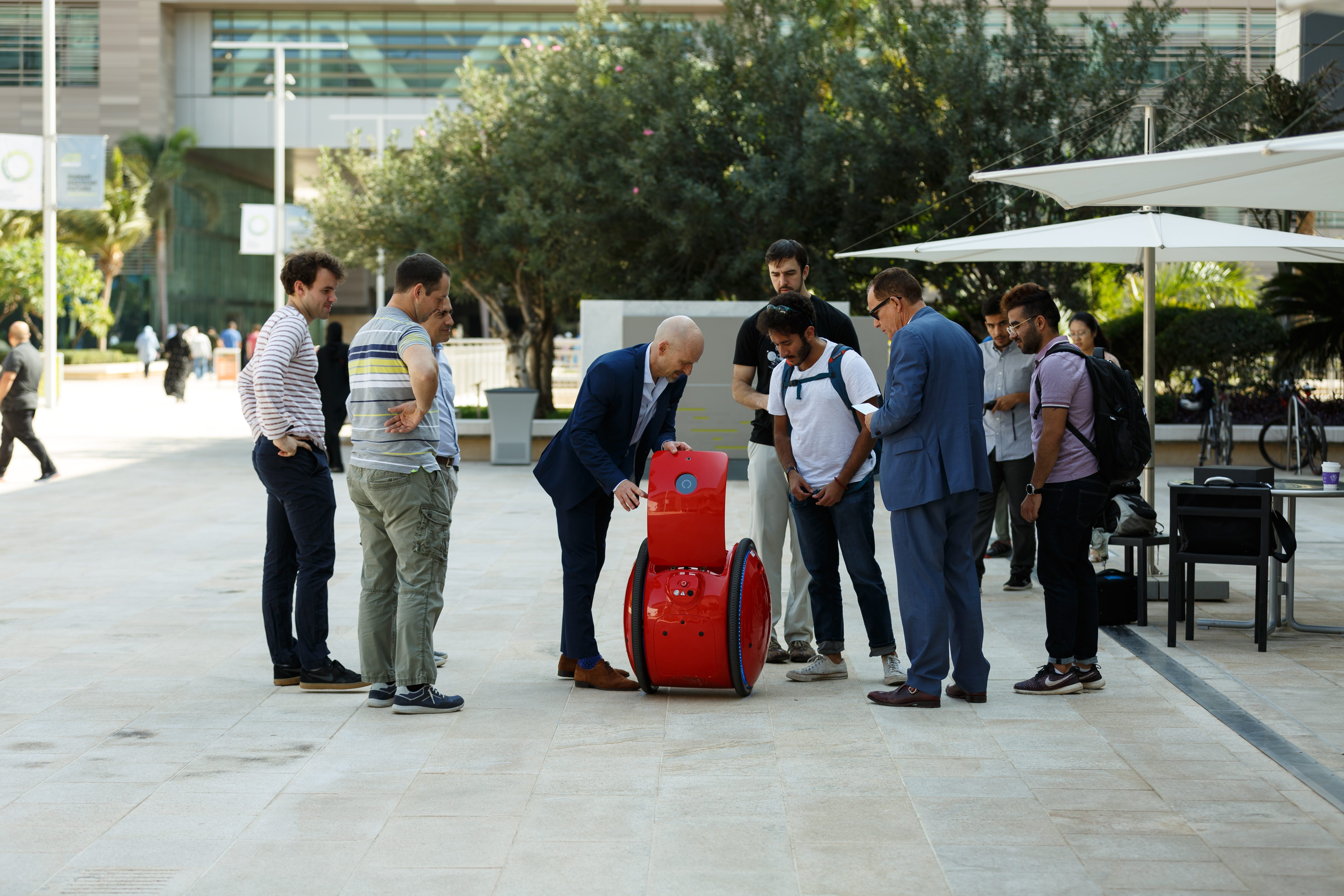From mobility to movability

Dr. Jeffrey Schnapp from Harvard University explains how to shift gears from mobility to movability and autonomy for humans in an era of robotics during the 2018 Winter Enrichment Program (WEP).
- By Andrea Hulsbosch, KAUST News
"The world of mobility is undergoing the most radical transformation since the beginning of the era of automobiles," Dr. Jeffrey Schnapp, a faculty member at Harvard University, said.
Schnapp is the founder of metaLAB at Harvard and the CEO of Piaggio Fast Forward. He shared his insights on a human-centeric approach to the design of smart robotic vehicles during his recent Winter Enrichment Program 2018 lecture.
Schnapp conceives of movability as a critique on the standard models of mobility—models that date back to the industrial revolution. The mission of his company is to create a human-centric alternative.
Schnapp believes that good design is informed by a complex array of factors that include socio-cultural as well as purely technical and functional factors. Rather than reinvent the wheel, they have sought to humanize it.
"The focus of our development process was to create a robot that moves the way humans do. Gita, a new kind of cargo robot, becomes a natural extension of our identity," said Schnapp.

Dr. Jeffrey Schnapp demonstrates the robot Gita's features on the KAUST campus during the 2018 Winter Enrichment Program (WEP).
"Questions about machine-human interaction are also questions about the quality of life," Schnapp pointed out.
Gita is a sidewalk vehicle devised to support a pedestrian lifestyle. If you know how to walk, you know how to drive a Gita. Pedestrian zones have been increasingly growing again over the course of the last half century, mostly because people have become aware of the enormous damage automobiles have done to the quality of city life.
The team at Piaggio Fast Forward is convinced vehicles that support pedestrian based economic activities and lifestyle will play a big role in a larger, pedestrian-friendly ecosystem. The company gradually wants to build towards a future where robots and humans coexist.
Related stories:

